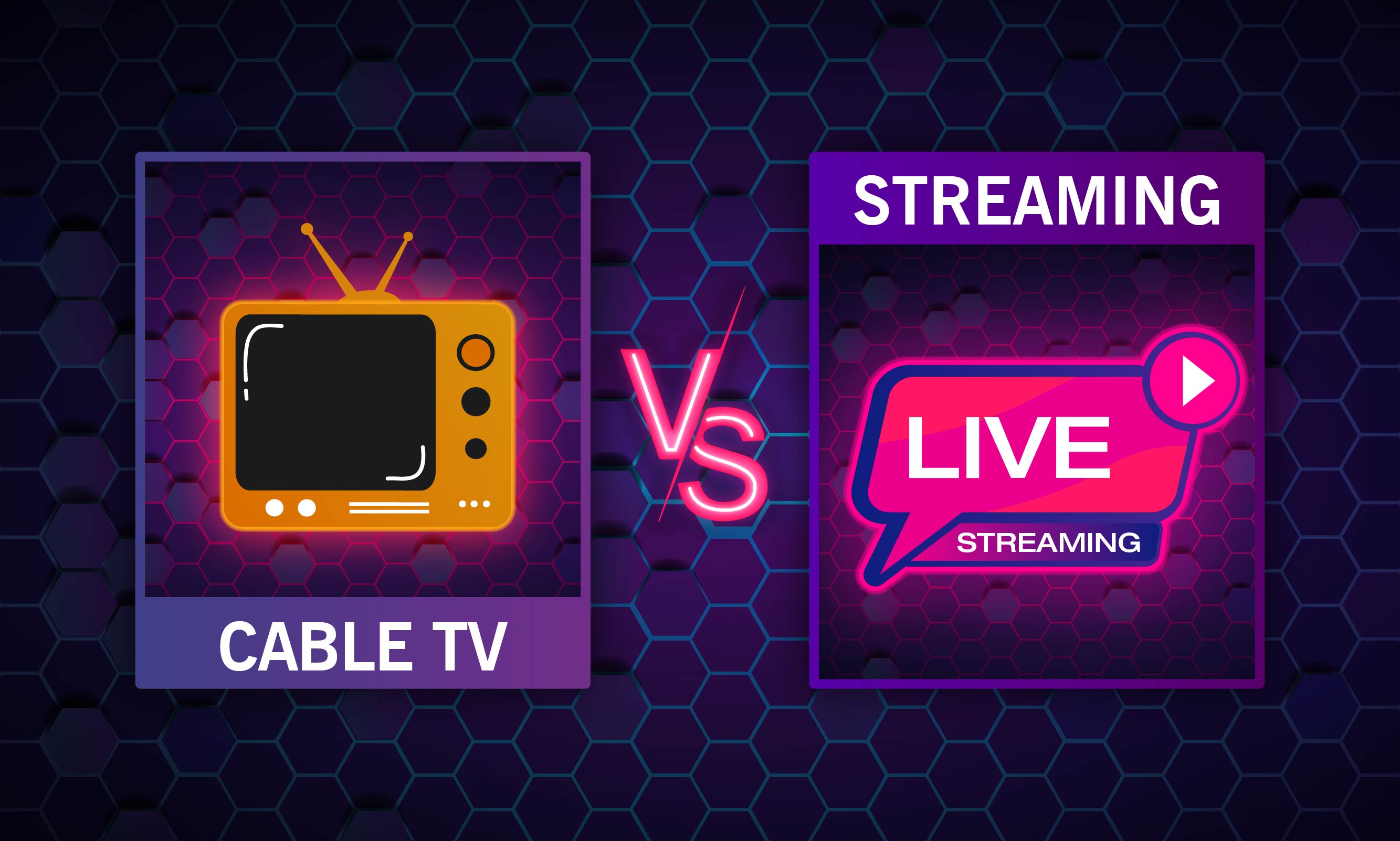Cable TV

Sean Scott
October 20, 2025

Cable TV VS Streaming: Pros and Cons of Each Entertainment Option
In the world of entertainment, the rise of streaming platforms has disrupted the traditional dominance of cable TV. With numerous streaming services and cable TV providers vying for our attention, it can be challenging to decide which option is best for our entertainment needs. In this blog post, we will explore the pros and cons of both cable TV and streaming, helping you make an informed decision. Whether you prefer the convenience of on-demand content or the comprehensive channel lineup of cable TV, this guide will provide valuable insights to help you choose the right entertainment option for your preferences. Cable TV provides a wide range of channels, offering diverse content including news, sports, movies, and specialized programming. With cable TV, you have access to local and international channels that may not be available on streaming platforms. If you enjoy watching live events, sports matches, and news broadcasts as they happen, cable TV provides real-time access to these types of content. It's often the go-to choice for sports enthusiasts who want to watch games live and experience the excitement in real time. Cable TV relies on a dedicated cable connection, which is generally more reliable than streaming services that depend on internet connectivity. Cable connections are less prone to buffering or interruptions caused by slow internet speeds or network congestion. Traditional cable TV subscriptions can be expensive, with monthly fees, additional charges for premium channels, and equipment rental costs. The overall cost can quickly add up, especially when compared to the more affordable options offered by streaming services. Cable TV follows a fixed schedule, meaning you have to adjust your routine to fit in with the programming. If you miss a show, you often have to rely on recording devices like DVRs to catch up later. Cable TV packages come with a set number of channels, and you may end up paying for content you don't watch or have little interest in. Customization options are limited, and you have to adhere to the predetermined channel lineup offered by your cable provider. Streaming services offer a range of affordable subscription options, allowing you to select the services that align with your preferences and budget. By subscribing to a few streaming platforms, you can access a vast catalog of content at a fraction of the cost of a cable TV subscription. Streaming services excel in providing on-demand access to a vast library of movies, TV shows, documentaries, and original content. You have the freedom to watch your favorite shows and movies at your convenience, without having to adhere to a fixed schedule. Streaming services allow you to personalize your viewing experience. You can choose the specific services and genres that interest you the most, create personalized watchlists, and receive recommendations based on your preferences. This level of control ensures that you only pay for what you want to watch. Streaming services rely on a stable and high-speed internet connection. In areas with limited or unreliable internet access, streaming may not be a viable option. Furthermore, streaming consumes significant bandwidth, so it's crucial to have a robust internet plan that can support multiple users and devices simultaneously. With multiple streaming platforms available, content is often spread across different services. This can lead to content fragmentation, requiring subscriptions to multiple platforms to access all the desired shows and movies. It's essential to consider the cost and convenience of managing multiple subscriptions. While some streaming platforms offer live TV options, the selection of channels may not be as extensive as what cable TV provides. If you're a sports enthusiast who enjoys live events or requires access to specific news channels, cable TV may be a more suitable choice. In the world of entertainment, the rise of streaming platforms has disrupted the traditional dominance of cable TV. With numerous streaming services and cable TV providers vying for our attention, it can be challenging to decide which option is best for our entertainment needs. In this blog post, we will explore the pros and cons of both cable TV and streaming, helping you make an informed decision. Whether you prefer the convenience of on-demand content or the comprehensive channel lineup of cable TV, this guide will provide valuable insights to help you choose the right entertainment option for your preferences.Cable TV Advantages:
Channel Selection:
Live TV and Sports:
Reliability:
Cable TV Disadvantages:
Cost:
Limited Flexibility:
Lack of Personalization:
Streaming Advantages:
Cost-Effectiveness:
On-Demand and Original Content:
Flexibility and Customization:
Streaming Disadvantages:
Internet Dependency:
Content Fragmentation:
Limited Live TV and Sports:
Conclusion:
As you weigh the pros and cons, consider your entertainment needs and prioritize factors such as channel selection, budget, convenience, and personalization. Konnect X offers high speed internet plans that can support your streaming needs, ensuring a seamless and enjoyable entertainment experience.
RECENT POSTS

Tips for Maximizing Wi-Fi Security and Protecting Your Personal Information
 Sean Scott
Sean ScottOctober 20, 2025


How to Set Up a Home Network for Seamless Connectivity and File Sharing
 Sean Scott
Sean ScottOctober 20, 2025


